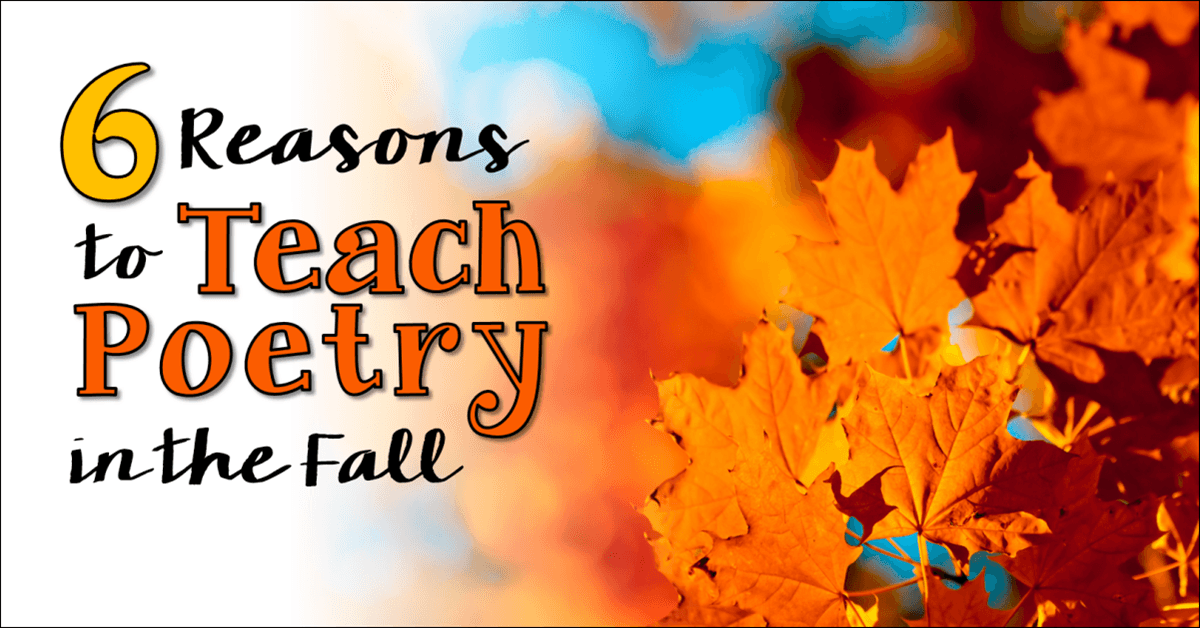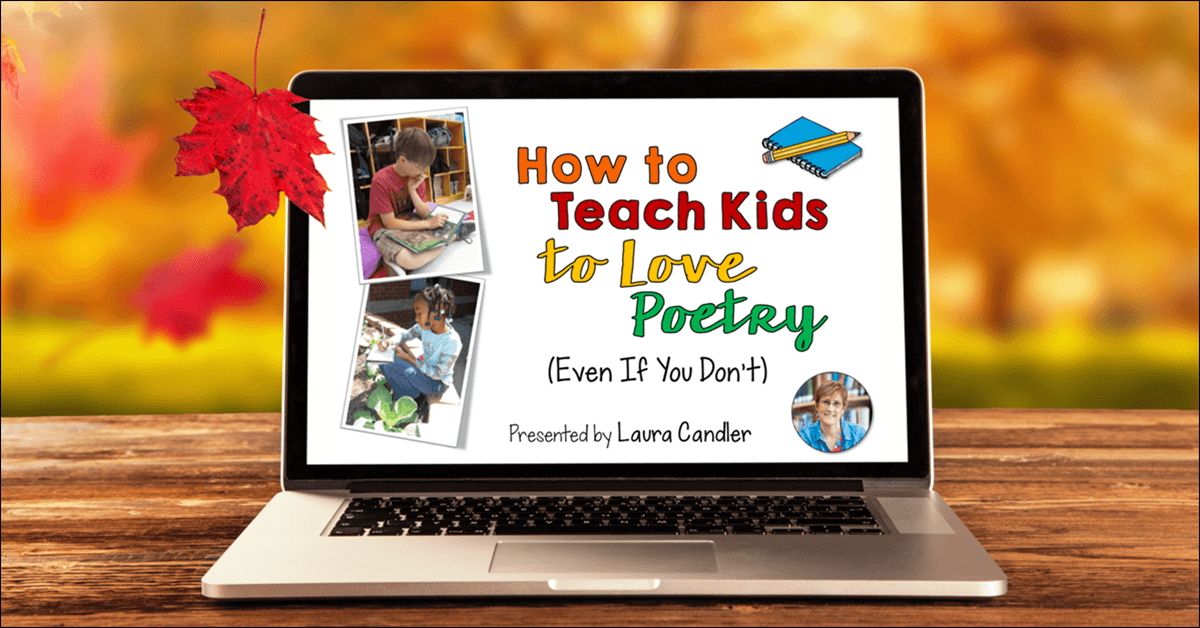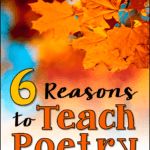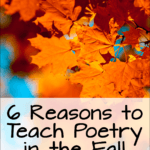6 Reasons to Teach Poetry in the Fall

When do you start teaching poetry in your classroom? If you wait until April because it’s National Poetry Month, consider introducing poetry during the first few months of the school year instead. In fact, I can think of at least six reasons that fall is the perfect time to teach poetry! If you agree and would like to learn more about teaching poetry, watch my free 3-part video series, How to Teach Kids to Love Poetry (Even If You Don’t).
1. Teaching poetry in the fall fosters an appreciation for precise and powerful language early in the school year.
Teaching kids about poetry begins with reading and sharing poems that are meaningful to them and noticing how poets use simple yet powerful language. When I introduce poetry in 4th and 5th grade, I start with free verse rather than rhyming poems because I want my students to notice how the poet paints a word picture using a variety of techniques. Sometimes it’s by using just the right word to create that image, and other times it’s through the use of poetic devices like similes, metaphors, and personification. These techniques are used by authors in short stories and novels, too, and after your students are able to find them in poetry, they’ll start noticing them in prose as well. So why not teach your students about the beauty and power of the written and spoken word early in the year?
2. Teaching kids to write poetry engages them in authentic writing experiences and begins to build their confidence as writers.
In order for kids to learn how to read and understand poetry written by others, they first need to write their own poetry. The sooner you teach kids how to write poetry, the more impact those experiences will have on their reading and writing skills later in the year. Kids love learning about “poetic license” and knowing that it’s okay to break the rules of grammar in order to craft a poem. I also love the fact that students like Keyera and Keenon (below) who typically struggle with writing assignments like creative stories and reports often shine when it comes to writing poetry. Free from worries about making grammatical errors, they can focus on capturing their feelings and painting word pictures on paper. Later, when they share their poems in class, their confidence soars as their classmates express genuine appreciation for what they’ve written.

3. Poetry is a great way to connect with your students and get to know them better.
When kids learn to write meaningful poetry “from the heart,” you’ll learn so much about them as young people and not just as your students. You’ll learn about their fears, anxieties, and passions, and you’ll learn to appreciate their uniqueness. You might have heard the saying that “Students don’t care how much you know until they know how much you care.” Reading and writing poetry together is a great way to show that you do care. Why wait until April to develop stronger relationships with your students?
4. Avoid test prep pressure by introducing poetry early in the school year.
You know what I mean. Test prep mania starts somewhere between January and April, depending on your state testing calendar. But no matter when it starts, sooner or later you’ll feel the pressure to cram as much instruction into every day as possible. And that kind of pressure doesn’t leave much time to savor the enjoyment of poetry. If you wait until the week before testing to teach poetry, you’ll be tempted to skip the poetry writing (no time for that!), and you’ll find yourself doing the very things that turn kids off about poetry. Don’t get me wrong. I do think kids should learn about poetic devices like similes, metaphors, and personification, and I do think they should learn to analyze poetry and look for deeper meanings. However, I think those skills should be developed through meaningful experiences with reading, writing, and discussing poetry and not in response to a standardized test that’s looming on the horizon.
5. Introduce poetry now, and you’ll be able to integrate it into other subjects later.
Teaching poetry early in the year gives your students a new voice with which to express themselves all year long. They might want to write a poem about the courage of early pioneers who traveled west in covered wagons, or as a journal response to a literature circle book. When your students discover something amazing in science, they might be inspired to write a poem about what they learned. If you’ve already introduced poetry early in the year, your students will be able to write easily on topics that interest them.

6. Fall is a beautiful season, and the beauty of nature will inspire your students!
If you live in a place where temperatures drop and trees blaze with color in the fall, you’ll know what I mean about the sights, smells, and sounds of autumn providing inspiration for young writers. Take advantage of these seasonal changes by incorporating them into your poetry unit. Sometimes kids have trouble thinking of topics to write about, and taking your students outside to write may be just what they need. Poetry often includes sensory language, and sensory experiences abound during autumn!
Free Poetry Video Presentation

If you’d like some tips for teaching poetry, watch my free 3-part video series, How to Teach Kids to Love Poetry (Even If You Don’t). You’ll learn how to teach a complete poetry unit, step by step, in a way that’s fun for you and that will also have your students begging for more! Who knows? You might learn to love poetry and discover your own inner poet!









